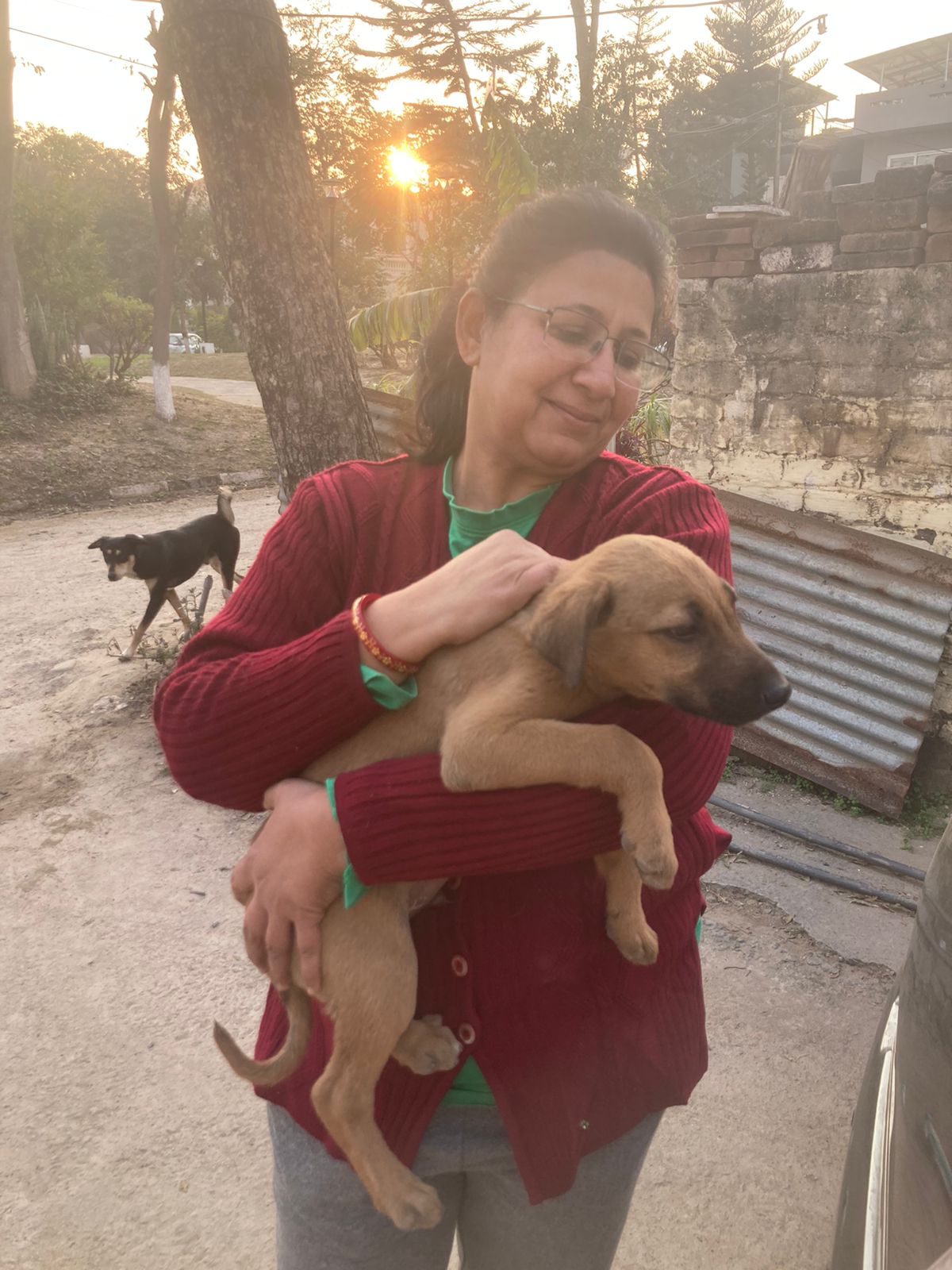By Shaurya Lal
A year ago, fear held the serene enclave of Silver City, Zirakpur captive. Parks lay silent, children retreated behind locked doors, and every walk required the uneasy company of a stick. The fear of stray dogs was a genuine one. Then, the tide turned. Not with a roar, but with a purr. Two women, Seema Manocha and Devanshi Nanda, residents of Silver City Towers, armed with nothing but unwavering hearts, entered the fray.

Their street dog model was a simple one. These two caregivers devised a strategic plan to address the street dog issue effectively. They designated specific feeding spots for the dogs, strategically located away from parks and public areas. Furthermore, they implemented strict regulations; imposing fines on anyone caught feeding dogs inside buildings or in non-designated areas. Rather than being chased away, the dogs found themselves being cared for. They also implemented a crucial measure to address the issue at its root: the sterilisation and neutering of stray dogs. Recognising the importance of controlling the population of strays, they organised and facilitated spaying and neutering procedures for the dogs under their care. A passionate group of dog lovers rallied around the cause, pooling their resources to provide food, medicine, and necessary treatments for the strays. When Punjab faced road blockages due to excessive rainfall, many residents opened their doors to shelter these dogs, showcasing a remarkable display of community compassion.
Under the watchful eyes and loving care of the residents, the demeanour of the once-frightened strays began to shift. These two women, in particular, took an active role in building trust and rapport with the dogs, often engaging them in playful interactions. Remarkably, one stray even learned to shake hands with people—a testament to the transformation brought about by consistent care and attention. With their basic needs met and their fears alleviated, the behaviour of the dogs evolved from wary and defensive to friendly and approachable. No longer driven by the instinct to hunt for food or evade danger, they found solace in the nurturing embrace of their newfound community. Now people who once dreaded and feared these 4 legged animals find themselves bathing in the sun while the dogs lie next to them in the public park.
We had an interaction with Devanshi who shared what brought her to this cause. She told us about how one cannot realise the importance of a dog’s companionship until they share a roof with one. When she got married and moved to a new city, she had to leave her pet behind but deeply missed him. She started caring for the local stray puppies by feeding them and taking care of them whenever she found time. When asked about the major challenges faced by her, she mainly highlighted how a societal conflict gets triggered. Not everyone is a dog lover and she is often called out publicly for her actions. She stated that “har kutta apna pyaar nikalwa leta hain”. She dived into this by stating how dogs cannot speak in our language but all the gesture they show are their way of loving us. We also asked for some tips local people can follow to get rid of the fear of dogs they foster. Her answer was that one must enter a dog’s good side which is by doing the bare minimum. When one puts out food for the dog, the animal remembers it as that person is added to the very tiny list of caregivers they have. Hence, the aggression goes away.
A major concern was also raised by her when we inquired if any local NGO has been supportive of her. The dog loving community of Silver City has been very deserted when it comes to outside help. Devanshi made a point about how most dog feeders are women and thus home makers. They live in patriarchal homes in which they are not the final authority. Approaching an NGO also means taking a legal standpoint which often sets them back in a close knitted society. NGOs should rather take sue motto action rather than being called out every time.NGOs to proactively address issues related to animal welfare without waiting to be approached, and advocated for a streamlined process where one complaint is sufficient to prompt action, even if the complainant faces obstacles in pursuing the matter further. This underscores the urgent need for greater alignment between NGOs and the grassroots reality, ensuring that support reaches those who need it most, without unnecessary barriers.

In 2021, Chandigarh reported 4,958 dog bite cases, a significant increase from previous years. Ultimately, the key to success lies in fostering a culture of empathy, cooperation, and shared responsibility towards our four-legged companions. By following in the footsteps of Seema and Devanshi and embracing their model of care and compassion, communities everywhere can pave the way towards a brighter, safer future for both humans and dogs alike.


